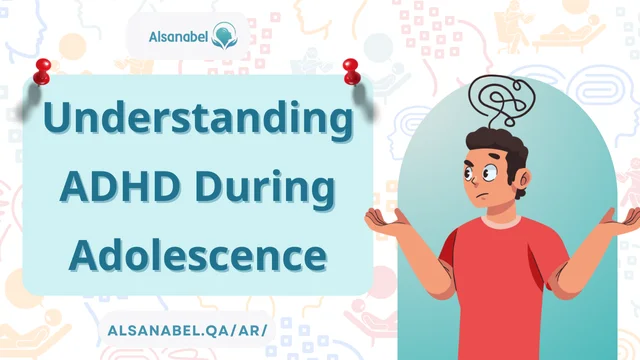
Adolescence is a critical phase of growth, marked by significant physical, emotional, and social changes. For teenagers with Attention Deficit Hyperactivity Disorder (ADHD), these years can be particularly challenging. Understanding the signs of ADHD in teens and providing appropriate coping strategies are essential for helping them navigate this transformative stage successfully.
This article explores the unique challenges associated with ADHD in teens, sheds light on early teens ADHD signs, and discusses effective strategies for managing symptoms in teens. By fostering awareness and empathy, we can empower teenagers with ADHD to thrive in both academic and social environments.
Understanding ADHD During Adolescence
ADHD is a neurodevelopmental disorder that continues from childhood into adolescence and adulthood. While the core symptoms—hyperactivity, impulsivity, and inattention—remain consistent, their manifestation often evolves as teens face new responsibilities and pressures.

Shifts in ADHD Symptoms During Teenage Years
As teenagers grow, ADHD traits may present differently compared to childhood. For example:
- Hyperactivity often becomes less visible but manifests as restlessness or difficulty relaxing.
- Inattention persists, frequently leading to struggles with academic tasks and time management.
- Impulsivity may lead to risk-taking behaviors, especially in social or peer-related situations.
Recognizing ADHD in Teens
Spotting signs of ADHD in teens requires understanding how the condition influences their daily lives. Adolescents with ADHD often exhibit behavioral patterns that stand out compared to their peers.
Common Behaviors
- Academic Struggles
- Forgetting assignments, missing deadlines, or having trouble organizing schoolwork.
- Emotional Regulation Issues
- Experiencing frequent mood swings or frustration over minor setbacks.
- Social Difficulties
- Interrupting conversations, missing social cues, or struggling to maintain friendships.
Distinguishing Early Signs
Recognizing early teens ADHD signs is crucial for timely intervention. Some indicators include:
- Procrastination
- Delaying important tasks or avoiding responsibilities altogether.
- Risky Behavior
- Engaging in activities without considering consequences, such as reckless driving or skipping school.
- Sleep Challenges
- Having difficulty falling asleep or maintaining a regular sleep schedule, further impacting focus and mood.
The Academic Impact of ADHD
School often becomes a primary source of stress for teenagers with ADHD, as they face increased demands for independence and accountability. The symptoms in teens can significantly hinder their academic performance.
Challenges in the Classroom
- Difficulty Staying Focused
- Struggling to concentrate during lectures or while completing assignments.
- Trouble Following Instructions
- Missing key details due to distractions or forgetfulness.
- Low Self-Esteem
- Feeling inferior to peers due to repeated academic setbacks.
Social Challenges for Teens with ADHD
For teens, social relationships are a cornerstone of development. However, ADHD for teens often complicates these interactions, leading to feelings of isolation or rejection.
Common Social Difficulties
- Interrupting Conversations
- Impulsively speaking out of turn, which can frustrate friends or peers.
- Struggling with Peer Pressure
- Being more susceptible to risky behaviors due to impulsivity and a desire for acceptance.
- Misinterpreting Social Cues
- Failing to pick up on body language or tone, which can lead to misunderstandings.
The Emotional Toll of ADHD
Living with ADHD in teens often involves heightened emotional sensitivity. This can amplify typical teenage challenges, making it harder to navigate relationships, school, and self-esteem.
Emotional Struggles
- Frequent Frustration
- Small obstacles can lead to disproportionate emotional reactions.
- Insecurity
- Comparing themselves unfavorably to peers, especially when struggling academically or socially.
- Difficulty Coping with Criticism
- Feeling overly sensitive to feedback, even when constructive.
Strategies to Help Teens Manage ADHD
Supporting teens with ADHD involves a combination of practical tools, emotional support, and professional guidance. These strategies aim to address their unique challenges while empowering them to leverage their strengths.
Building Organizational Skills
- Using Tools and Technology
- Digital planners, apps, and reminders can help teens stay on track with assignments and responsibilities.
- Creating Visual Aids
- Charts and checklists can simplify complex tasks, making them more manageable.
Enhancing Focus and Concentration
- Establishing Routines
- Consistent daily schedules help reduce anxiety and improve productivity.
- Incorporating Breaks
- Short, regular breaks during study sessions prevent mental fatigue.
Fostering Emotional Resilience
- Teaching Coping Mechanisms
- Techniques like mindfulness or deep breathing can help teens manage frustration and anxiety.
- Encouraging Positive Reinforcement
- Celebrating small successes boosts confidence and motivation.
Building Strong Social Connections
- Role-Playing Social Scenarios
- Practicing conversations and responses helps teens feel more comfortable in social settings.
- Encouraging Group Activities
- Joining clubs or sports teams provides opportunities to build friendships in structured environments.
Answering Common Questions About ADHD in Teens

1. How does ADHD develop in teens?
ADHD symptoms often evolve during adolescence, with hyperactivity becoming less visible but challenges like impulsivity, inattention, and emotional regulation remaining prominent.
2. What are the academic challenges for teens with ADHD?
Teens with ADHD may struggle with focus, organization, and time management, often leading to incomplete assignments, lower grades, and feelings of inadequacy.
3. How does ADHD affect teens’ social relationships?
ADHD can make social interactions difficult, with behaviors like interrupting conversations, missing social cues, and being overly impulsive affecting friendships and peer acceptance.
4. What strategies can help teens manage ADHD?
Strategies include creating structured routines, using organizational tools, teaching coping mechanisms for emotional regulation, and fostering social skills through guided practice and group activities.
5. What is the impact of ADHD on teenage behavior?
ADHD can lead to risk-taking, emotional outbursts, procrastination, and struggles with authority, impacting both personal relationships and overall development.
Understanding ADHD in teens is essential for providing the right support during this transformative stage of life. Recognizing the signs of ADHD in teens, such as inattention, impulsivity, and emotional sensitivity, allows parents, teachers, and peers to offer meaningful help.
By implementing tailored strategies, fostering empathy, and addressing early teens ADHD signs, teens can overcome challenges and unlock their full potential. With the right support, they can thrive academically, socially, and emotionally, proving that ADHD is not a limitation but an opportunity to grow in unique and powerful ways.
